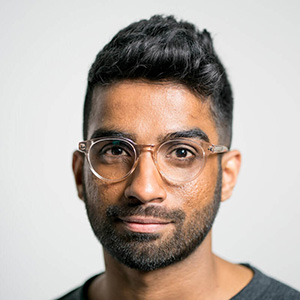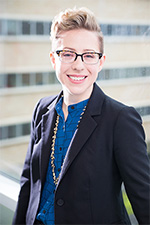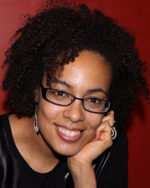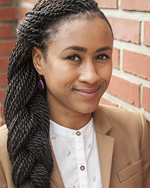Diversity and Inclusion, Department of Neurology

We foster a department that is diverse in people and ideas
We foster a department that is diverse in people and ideas; is inclusive of diversity in race, ethnicity, gender, sexual orientation and gender identity, ability and disability, age and appearance. We strive to provide the highest quality care for all people, with understanding of historical racial, ethnic, and gender-biases that have undermined care equity.
OHSU Department of Neurology Diversity, Equity and Inclusion Initiatives
Recruitment
We strive to recruit, retain, and support diverse faculty, residents, staff, and interns. Our Department is dedicated to the advancement of racially, ethnically and gender-diverse faculty, staff, fellows, and students.
Research
We are dedicated to research that engages diverse populations and that examines issues affecting the health and well-being of underrepresented and marginalized groups.
- Raina Croff, Ph.D. participated in forums to increase research participation of diverse groups: Alzheimer’s Researchers Seek Advice on How to Include African-Americans and Including Older Adults in Research.
Mentoring and training
We are actively engaged in mentoring and training future scientists who come from economically and racially underserved groups. Leadership includes:
- Letisha R. Wyatt, Ph.D., coordinator for Neuroscience Diversity in Research Post-baccalaureate
- Raina Croff, Ph.D. and Allison Lindauer, Ph.D., N.P., OHSU/PSU NIH BUILD EXITO program (Layton Aging and Alzheimer's Disease Center Newsletter, page 5)
Care for patients of all backgrounds
Our faculty participate in local and national advocacy initiatives, and research initiatives to address and raise awareness of neurologic care of patients from all backgrounds.
- Holly Hinson, M.D., M.C.R., leads initiatives on quality of care for LGBTQ community.
- Raina Croff, Ph.D. and Allison Lindauer, Ph.D., N.P. lead innovative research initiates to PreSERVE brain wellness in Portland’s black elder community.
How we foster a culture of belonging
We believe in fostering inclusivity and creating a culture of belonging for all faculty, staff, and trainees, wherein diverse ideas, perspectives, and backgrounds contribute to the advancement of our department.
- Our Neurology Diversity and Inclusion Committee meets regularly and engages departmental leadership, junior and senior faculty, residents, post-doctoral fellows, graduate students, interns, and staff.
- Faculty members Edward Kim, M.D. and Marissa Kellogg, M.D., M.P.H. lead resident discussions to raise awareness of diversity and inclusion supports at OHSU. Learn more about our residency program.
Unconscious bias training
We are dedicated to examining our unconscious biases and provide tools for our faculty, staff, and trainees to uphold quality and equity for all.
- We support the need for unconscious bias training for all employees in the Department of Neurology
- We host periodic Neurology Grand Rounds focusing on diverse populations, and on diversity, inclusion, and unconscious bias in medicine. Visiting lecturer Lisa Barnes, Ph.D., Rush Medical Center, presented on Race and Cognitive Aging. Jeffrey Proulx, Ph.D. presented on Exploring Implicit Bias in Clinical and Academic Settings. Holly Hinson, M.D., M.C.R. presented on LGBQTI Health in Neurology.
Upcoming events of interest
Brain Health Bridges Across the US and Latin America: From Computational Approaches to Brain Health Diplomacy
Agustin Ibáñez, Ph.D., Professor, Center for Social and Cognitive Neuroscience and Director, Latin American Brain Health Institute (BrainLat), Universidad Adolfo Ibanez, UAI, Chile
June 21, 2023
The Evolving Landscape of Therapy Development in Neurology
Erika Augustine, M.D., M.S., Associate Chief Science Officer, Director of Clinical Trials Unit, Kennedy Krieger Institute, Baltimore, MD
June 7, 2023
The LGBTQ Community, Cognitive Impairment, and Caregiving
Whitney Wharton, Ph.D., Associate Professor, Director, School of Nursing Biofluid Laboratory, Emory University, Atlanta, GA
May 10, 2023
When Social Neuroscience Meets Environmental Psychology: A Love Story
Shellae Versey, Ph.D., M.P.H., M.S., Assistant Professor, Psychology & African American Studies, Fordham University, NY
June 1, 2022
Social and Structural Determinants of Inequalities in Cognitive Impairment and Dementia
Jennifer Manly, Ph.D., Professor, Neurology, Columbia University Irving Medical Center, NY
May 25, 2022
Achieving Equity and Justice in Neurology
Nicte I. Mejia, M.D., M.P.H., Assistant Professor, Neurology, Harvard SoM, Boston, MA
December 15, 2021
The Biopsychosocial Impact of Art on the Neurobiology of Stress: An Awareness-Based Approach to Healing Intergenerational Trauma
Sara King, M.A., Ph.D., Postdoctoral Fellow, Neurology, OHSU
October 13, 2021
The Effects of Sleep Disturbance on the Brain
Temitayo O. Oyegbile-Chidi, M.D., Ph.D., Associate Professor, University of California, Davis
September 15, 2021
Neurodecolonization, Mindfulness, and the Medicine Wheel: An Indigenous Model of Traditional Healing
Michael Yellow Bird, M.S.W., Ph.D., Dean and Professor, Faculty of Social Work, University of Manitoba, Winnipeg, Canada
June 30, 2021
How Can We Achieve Equity In Parkinson’s Disease Care?
Nabila Dahodwala, M.D., M.S., Associate Professor, Neurology & Perelman SoM, University of Pennsylvania
March 31, 2021
Multiple Sclerosis in African Americans: Differences and Disparities between Black and White
Edward Kim, M.D., Associate Professor, Neurology, OHSU
December 16, 2020
Beyond Diversity: The Challenge of Building a 21st Century Workforce in Healthcare
Esther K. Choo, M.D., M.P.H., Professor, Emergency Medicine, OHSU
September 23, 2020
Recent news
Three 2024 Valerie Palmer Global Health Neurology Diversity Research Awards have been awarded, one to Neurology, a second to Dermatology and a third to the Institute of Occupational Health Sciences.
Raina Croff, Ph.D., Walking, reminiscing benefit brain health in older Black adults (OHSU News, Feb. 28, 2024), KOIN, Fox 12 Now, Medical Xpress
Spotlight on...

Ozama (Oz) Ismail, Ph.D. is a postdoctoral scholar in the Mishra Lab, studying the mechanistic links between small stroke events and the onset of Alzheimer’s pathology later in life. Oz is also an advocate for improving diversity and addressing racial inequity and is passionate about raising minoritized voices within science and society. He co-founded the Minorities in STEM network and sits on the board of the Alliance for Visible Diversity in Science. Oz is also an avid science communicator and co-hosts a popular science podcast called Why Aren’t You A Doctor Yet? (on Spotify). Podcast also available on iTunes.
Resources
OHSU
- OHSU Center for Diversity and Inclusion
- OHSU Neuroscience Graduate Program Diversity Mission
- Employee resource groups
National
- American Academy of Neurology: Equity, Diversity and Inclusion
- American Academy of Neurology: Diversity and Inclusion Initiatives
Tools
- Implicit bias tools Harvard Project Implicit – 15 IAT
- Avoiding gender bias in reference writing Arizona State University
- Gender bias calculator on Github
Articles
- Holly Hinson, M.D. (OHSU) Publication in Neurology: AAN members on treating sexual and gender minorities
- Roy Hamilton, MD, MS (U Penn) Enhancing Diversity in Academic Neurology
- From OHSU Building Interdisciplinary Research Careers in Women’s Health (BIRCHW)
Archive of spotlights

Holly Hinson, M.D., MCR, FAAN named Associate Editor of Equity, Diversity, and Inclusion for Neurology (October 8, 2019).
Watch Hinson's Neurology Grand Rounds: LGBQTI Health in Neurology.

Sharing History through Active Reminiscence and Photo-Imagery (SHARP) (OHSU News, Spring 2020)
Program led by Raina Croff, Ph.D. strives to forestall memory loss through walking and reminiscing in north and northeast Portland.

Sará King, Ph.D., T32 postdoctoral fellow and OFDIR awardee, is featured in a story about influential yogis shaking up the way we look at, talk about and practice yoga: 15 Influential Yogis You Need to Know, Yoga Journal
Sará King’s work integrates culturally celebratory yoga and mindfulness practices into a community intervention for Alzheimer’s disease for the African-American community of Portland, SHARP. Her research also focuses on healing the trauma of gentrification and its impact on brain and cognitive health. Sará is an internationally recognized thought leader in field of mindfulness and social justice in schools, and has enjoyed public speaking and advocacy work at the intersection of these fields.
